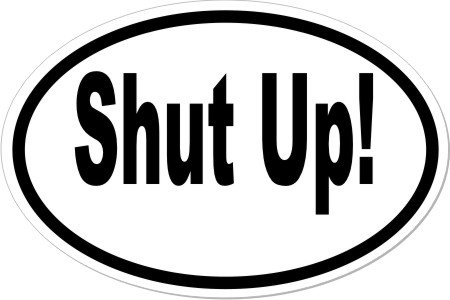
Britain’s Culture Secretary Andy Burnham says he is pushing for new standards of decency to be applied to the Web and says giving film-style ratings to individual Web sites is a possibility, London’s Daily Telegraph reports. Describing the Internet as a ‘quite a dangerous place,’ Burnham told the Daily Telegraph he is planning to negotiate with President-elect Obama’s incoming administration to draw up new international rules for English language Web sites.
Isn’t this an attack on freedom of speech? ‘This is not a campaign against free speech, far from it; it is simply there is a wider public interest at stake when it involves harm to other people,’ Burnham told the Daily Telegraph. ‘We have got to get better at defining where the public interest lies and being clear about it.’
So let me get this straight. When government regulates what can and cannot be said on the Internet, it’s NOT a restriction on freedom of speech — so long as the government claims it’s striving to act in “the public interest.”
But Hitler and the Nazis claimed to be acting in “the public interest.” The Soviet Communists claimed to act in “the public interest.” Chinese Communists today, along with the mullahs in Iran and dictatorships in Venezuela and Cuba all claim to serve “the public interest.” How or why is it any different, in principle, when the British and American governments strive to do it?
Of course governments must protect individuals from harm. But since when did physical harm — the kind done by a violent criminal — become lumped with another kind of harm, the kind practiced by “harmful speech?” I don’t see how any speech can or should be a crime. Of course, speech can be offensive, sometimes self-evidently so. But why is this any concern of the government? If the speechmaker is doing so on his own property, with his own nickel, or on his own web site — why is this any business of the government?
These are the questions nobody is asking. Why aren’t they?
We’re reaching a critical point in the next several years. Advocates of government control — over the economy, over medical care, over freedom of association and speech — are on the rise as perhaps never before in countries that have traditionally stood for freedom. If these political trends crash and burn over the next few years, especially in America and Britain, then it could end up being a great victory for the renewal of freedom. If they succeed, it will be the beginning of a new Dark Ages.
Freedom in general rises or falls on the existence of freedom of speech. The Internet is one of the most dynamic and important vehicles for expression in the world. The Internet has been hard on those who value the state — and dictatorship — over the rationality and freedom of the individual mind.
There’s no question about which side deserves to win, but there is plenty of question, right now, about which side is going to win.
Opponents of freedom of speech haven’t changed since the Dark Ages. They try to distract you by pointing out the undesirability (real or alleged) of certain speech. They try to distract you from fighting, on principle, for freedom of ALL speech. Government cannot determine which speech is rational and which isn’t — nor should it try. The radical nature of America, at its founding, rested on this principle. If freedom of speech goes, then everything else that depends on it — any particular freedom you now currently enjoy — will go with it. Don’t let it go.
